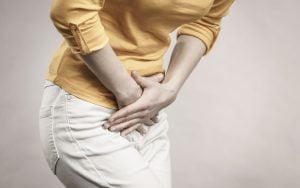The American Urological Association (AUA) has designated November as Bladder Health Month.

So often we take bladder health for granted until a problem starts to develop, therefore the AUA is committed to increasing the public’s awareness about bladder health conditions.
Some symptoms of an infected bladder are:
- Pelvic pain
- Increased urge to urinate
- Pain with urination
- Blood in the urine
The good news is by taking an active role in your bladder health you can avoid infections and reduce the risk of developing several medical problems. Here are some ways you can help improve your bladder’s health and help it to function properly.
- Don’t wait long to use the bathroom. Holding in urine can add pressure to the bladder and increase the risk of developing infections.
- Do not rush when emptying your bladder. Rushing may result in your bladder not emptying completely- this can lead to bladder infections.
- Avoid food or drinks that contain irritants. Certain food or drinks that contain ingredients such as caffeine, artificial sweeteners, acid, spices, excessive amounts of salt and alcohol can worsen bladder problems.
- Drink enough water throughout the day. Drinking your daily recommended amount of water can help flush out bacteria in the urinary tract.
- Avoid constipation by adding fiber to your diet. Constipation often results in a full rectum which adds pressure to the bladder.
- Urinate after having intercourse. Men and women should try to urinate after sexual intercourse. This helps to flush away bacteria that may have entered during sex.
If you are experiencing symptoms of a bladder infection and have questions about maintaining bladder health, please call Flushing Hospital’s Ambulatory Care Center at 718-670-5486 to schedule an appointment with a urologist.
All content of this newsletter is intended for general information purposes only and is not intended or implied to be a substitute for professional medical advice, diagnosis or treatment. Please consult a medical professional before adopting any of the suggestions on this page. You must never disregard professional medical advice or delay seeking medical treatment based upon any content of this newsletter. PROMPTLY CONSULT YOUR PHYSICIAN OR CALL 911 IF YOU BELIEVE YOU HAVE A MEDICAL EMERGENCY.
